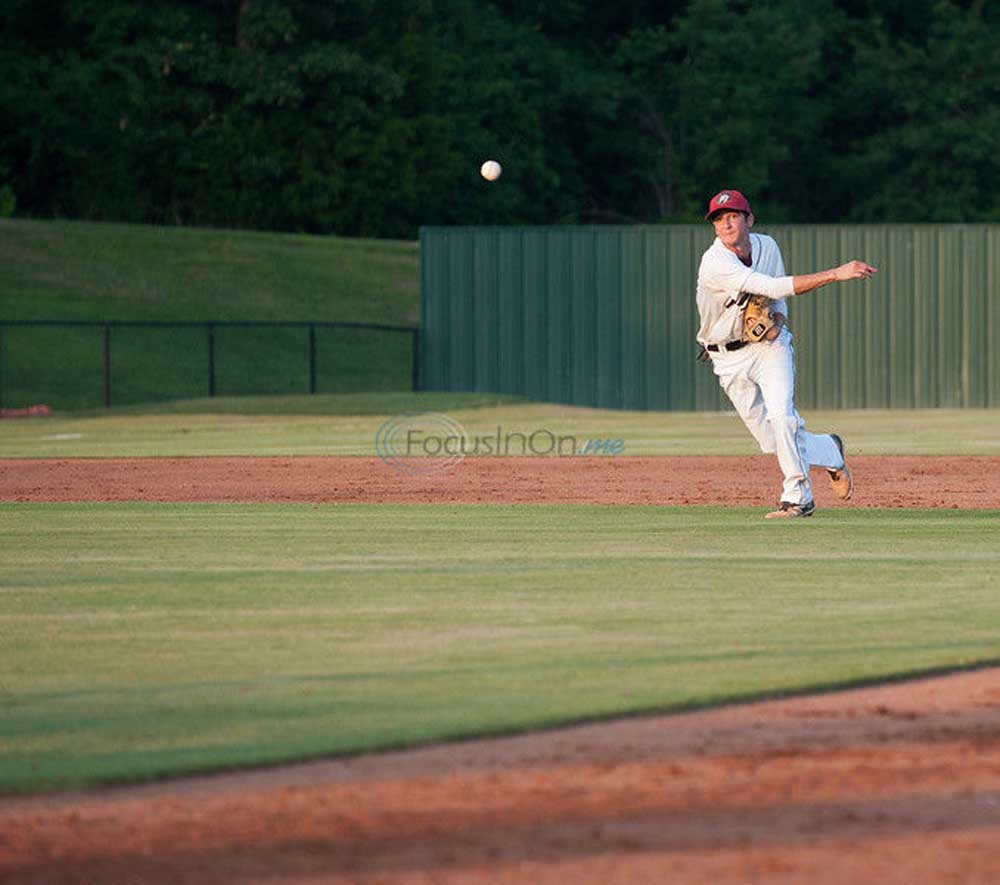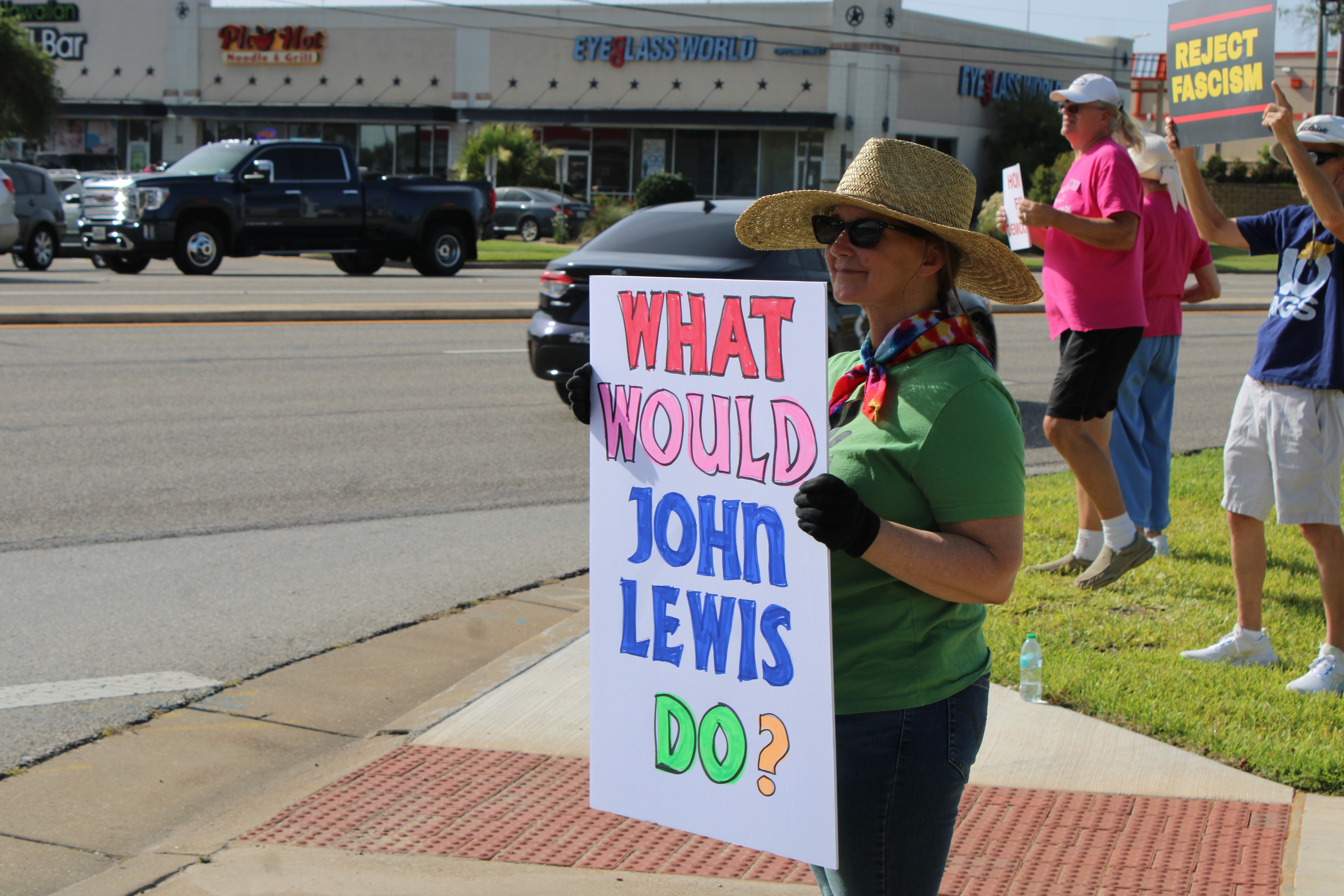Ups and downs for Pump Jacks’ first year in Tyler
Published 5:57 am Sunday, August 30, 2015

- (photo by Sarah A. Miller/Tyler Morning Telegraph)
The summer grind is over for the East Texas Pump Jacks, but it never really ends, said the team’s co-owner and general manager Mike Lieberman.
Trending
The team is weeks removed from its eighth Texas Collegiate League season, and Lieberman is preparing offseason plans for the 2016 summer season.
East Texas went 25-28 overall in its inaugural Tyler season. The team’s second-half effort was enough to make the playoffs. But its run ended before it began, as the team was no-hit in its first single-elimination playoff game.
Other teams in the wooden bat summer league made up of college and university players from around the country and Canada, include the McKinney Marshals, Brazos Valley Bombers in Bryan, the Victoria Generals, Woodlands Strykers (Spring) and the Lafayette, Louisiana-based Acadiana Cane Cutters.
Lieberman said recently that he’s excited about the initial response and feedback received from local fans and businesses. He was happy to see new faces at Irwin Field each home game and confident about the team’s potential growth through word-of-mouth and continued marketing.
He believes the season opened Tyler baseball fans’ eyes to what a local ballpark experience can be like. Lieberman said many were surprised to find such a quality baseball facility exists in The University of Texas at Tyler’s Irwin Field, which is tucked away within the campus but a minute from Loop 323.
Overall, Lieberman said the team’s first year in Tyler was positive and left him with an optimistic outlook regarding the area’s potential.
Trending
There were successes the first season, Lieberman said, but there also were bumps in the road. The team lost its coach and assistant coach to new jobs at the university level. Financial strain led to late payments to the team’s host – The University of Texas at Tyler.
Crowds at home games didn’t meet expectations of the move to a larger market, and the team had to rely on faithful host families in Kilgore to provide housing for a few players.
Lieberman attributes this season’s off-the-field stumbles to the team’s move from Kilgore to Tyler six weeks before opening day. In many cases, from wrangling sponsors and host families to reaching potential fans with promotions, the team’s move meant starting from scratch.
It was an up-and-down year on and off the field, Lieberman said. The move and other changes, such as the coaching change, didn’t create optimal conditions for an 11-week season.
“The one thing that impacted the Pump Jacks’ first season here was the time frame,” Lieberman said. “Six weeks was not enough time to complete what needed to get done. There was a lot about the Tyler market we had to learn, things as simple as having a place for interns to live.”
UT TYLER
Howard Patterson, UT Tyler vice president for administration and government relations, oversees the baseball field operations. The Pump Jacks and the university entered an agreement for use of Irwin Field from May 20 through Aug. 15 for 30 home games and up to three playoff games. Patterson said the contract was drawn to protect both sides and spelled out the club’s expectations for services and the university’s expectations for payment. It included restrictions on field use, the rental cost ($15,000) and revenue sharing (12 percent of gross beer sales), field maintenance and materials ($7,614), pay for two university staffers ($150 each game for a groundskeeper and $135 for a facility administrator) and other requirements, such as insurance liabilities and crowd safety.
As of Aug. 3, the Pump Jacks were $12,000 behind payments to the university for field rental, paying staff and concession commissions.
At the time, Patterson said he was confident the team would meet its contractual obligation but that failure to live up to the contract could impact the university’s relationship with the team.
“If they still owe us money at the end of it, you have to ask yourself ‘How do you bring them back?'” Patterson said.
Lieberman made a payment on Aug. 4, Patterson said, and caught up on all field-related payments before the contract expired to his knowledge.
Patterson said he and his staff would discuss renewal of the contract but gave no indication the team’s tardy payment would jeopardize the relationship going forward. He chalked the failure up to the late start and noted that contractual negotiations within The University of Texas System likely stretched the team’s move further than expected.
Lieberman said the late start in a new town did put the team in a financial straight. He said a full off-season to develop sponsorship and promotional opportunities would help the team going forward.
“It was something we had to face, and it’s disappointing and certainly not the situation we wanted to be in,” Lieberman said. “We’ve taken steps to ensure that’s not the case in the future.”
ON THE FIELD
Harvard University Volunteer Assistant Ernie May coached the team until mid-June when his new position at the Ivy League school became available. May has coached collegiate players for more than 20 years during college and summer league seasons.
May said his experience with the team was good while it lasted. The team knew going into the season that Harvard might call, May said. But Lieberman viewed May as the most experienced, best choice to coach the collegiate players and gambled on the call coming later.
May said players acclimated to their new environment and home families and were gaining consistency on the field before he left for the job opportunity.
“They were starting to gel,” he said. “We had some good talent, and I think they liked where they were and where they were playing.”
He called the UT Tyler facilities and staff “top notch.”
May noted the good to sparse attendance at games. But he noticed the same at other ballparks in similar and bigger markets. May was surprised to see so few fans in McKinney, a Dallas suburb, while fans flocked to games in Victoria.
There was hope the team would add an entertainment attraction for Tyler residents and people from around East Texas who might be in town to shop, get a bite to eat and take in a game. Moving to a bigger market made sense to Lieberman, who felt locating to Tyler would make the team more viable.
Kilgore is a town of about 15,000 residents that swells to about 30,000 people daily. Tyler has more than 100,000 residents, and its daily population more than doubles.
In Kilgore, the team averaged 325 to 350 fans. Irwin Field’s capacity is about 1,000.
May said most people don’t know how difficult it is to maintain a baseball operation. Unless owners are flush with cash, Mays said, money can ebb and flow in baseball operations at every level, even in the majors.
Teams are subject to the market and how the team works with community businesses, which can cover much of the day-to-day operational expenses via sponsorships, he said.
“Going into a new market is difficult,” he said. “There’s more opportunity (in a bigger market), but it takes time to build relationships with sponsors and the community you’re in.”
Lieberman didn’t report any official attendance numbers but acknowledged they were below expectations. He said the team drew some large crowds and that it will be up to him and his staff to find the right carrot to reach the public and build the fan-base.
It was an up-and-down year on and off the field, Lieberman said. The move and other changes, such as the coaching change, didn’t create optimal conditions. But he said the team started clicking in the second half and expects to maintain the momentum through the fall, winter and spring preparations for next year.
“From a general standpoint, we’re excited to be here and excited about what a second season has to offer,” he said. “Any bumps in the road have not discouraged us from remaining here and realizing Tyler’s potential.”






